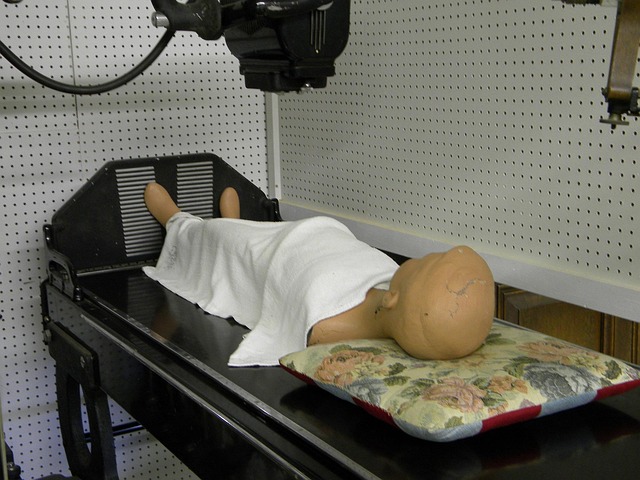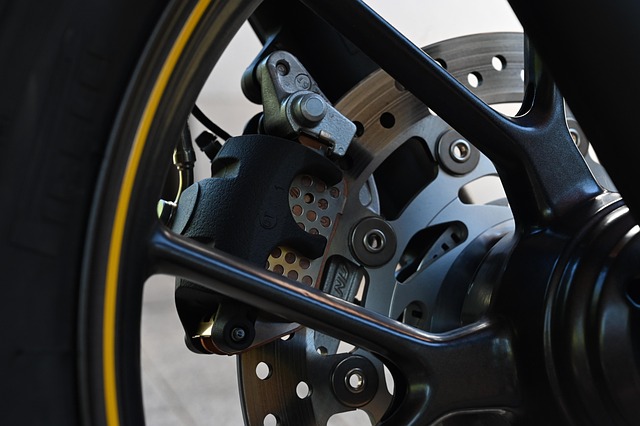Chiropractic management provides a non-surgical, safe solution for herniated discs resulting from post-car crashes, focusing on spinal decompression therapy. This technique gently stretches the spine to reduce pressure and alleviate pain by reversing nerve compression. Chiropractic care, combined with other therapies, offers personalized treatment for back, neck, or limb discomfort, aiming to restore function and improve overall recovery.
“Experience persistent herniated disc pain after a post-car crash? Look no further than spinal decompression, a promising chiropractic management technique. This innovative approach aims to alleviate pain and restore function by gently separating the vertebrae, relieving pressure on pinched nerves. In this comprehensive guide, we’ll explore ‘chiropractic management for herniated discs’ and uncover the benefits and considerations of effective treatment. Discover how spinal decompression can be your path to recovery.”
- Understanding Spinal Decompression for Herniated Discs
- Chiropractic Management After a Post-Car Crash
- Benefits and Considerations for Effective Treatment
Understanding Spinal Decompression for Herniated Discs

Spinal decompression is a non-surgical treatment approach gaining popularity for managing herniated discs, often a common issue following a post-car crash. This technique aims to reduce pressure on the affected area, alleviating pain and potentially reversing nerve compression. By gently stretching the spine, spinal decompression therapy seeks to create space between vertebrae, relieving pressure on trapped nerves.
Chiropractic management plays a significant role here, as chiropractors are trained to diagnose herniated discs and determine if decompression is an appropriate treatment option. This safe and effective method can offer relief for those struggling with pain resulting from a post-car crash, providing an alternative solution without the need for invasive procedures.
Chiropractic Management After a Post-Car Crash

After a post-car crash, individuals often seek relief from pain and discomfort, especially if they’ve suffered from herniated discs. Chiropractic management plays a significant role in this recovery process. Chiropractors employ various techniques to assess and treat spinal issues that may have arisen from the impact of a car accident. One common approach is spinal decompression, which aims to reduce pressure on the affected area, potentially relieving pain associated with herniated discs.
This non-invasive procedure involves carefully adjusting and stretching the spine, creating a gentle separation between vertebrae. By doing so, chiropractic management helps alleviate nerve compression and promotes healing. It’s particularly effective for individuals experiencing pain, numbness, or weakness in the back, neck, or limbs following a post-car crash. Chiropractors often combine spinal decompression with other therapeutic methods to offer a comprehensive treatment plan tailored to each patient’s needs.
Benefits and Considerations for Effective Treatment

Spinal decompression therapy has emerged as a promising treatment option for individuals suffering from herniated discs, often a result of trauma like post-car crashes. This non-invasive technique aims to alleviate pain and restore function by gently separating the vertebrae, reducing pressure on pinched nerves. One of its key benefits is the minimal risk involved, making it an ideal alternative to surgery for many patients.
Effective treatment requires a tailored approach. Chiropractic management plays a vital role in decompressing the spine, realigning misaligned vertebrae, and promoting healing. Regular sessions can help reduce inflammation, improve nerve function, and enhance overall spinal health. Consideration should be given to individual patient needs, as factors like disc herniation severity, duration of symptoms, and underlying health conditions influence treatment outcomes.
Spinal decompression therapy offers a promising solution for individuals suffering from herniated disc pain, especially after a post-car crash. This non-invasive approach, often facilitated by chiropractic management, can provide significant relief and improve overall mobility. By understanding the benefits and considering personalized treatment plans, patients can navigate their recovery effectively. Chiropractic management plays a pivotal role in managing herniated discs, ensuring a comprehensive and tailored approach to alleviate pain and restore function.














